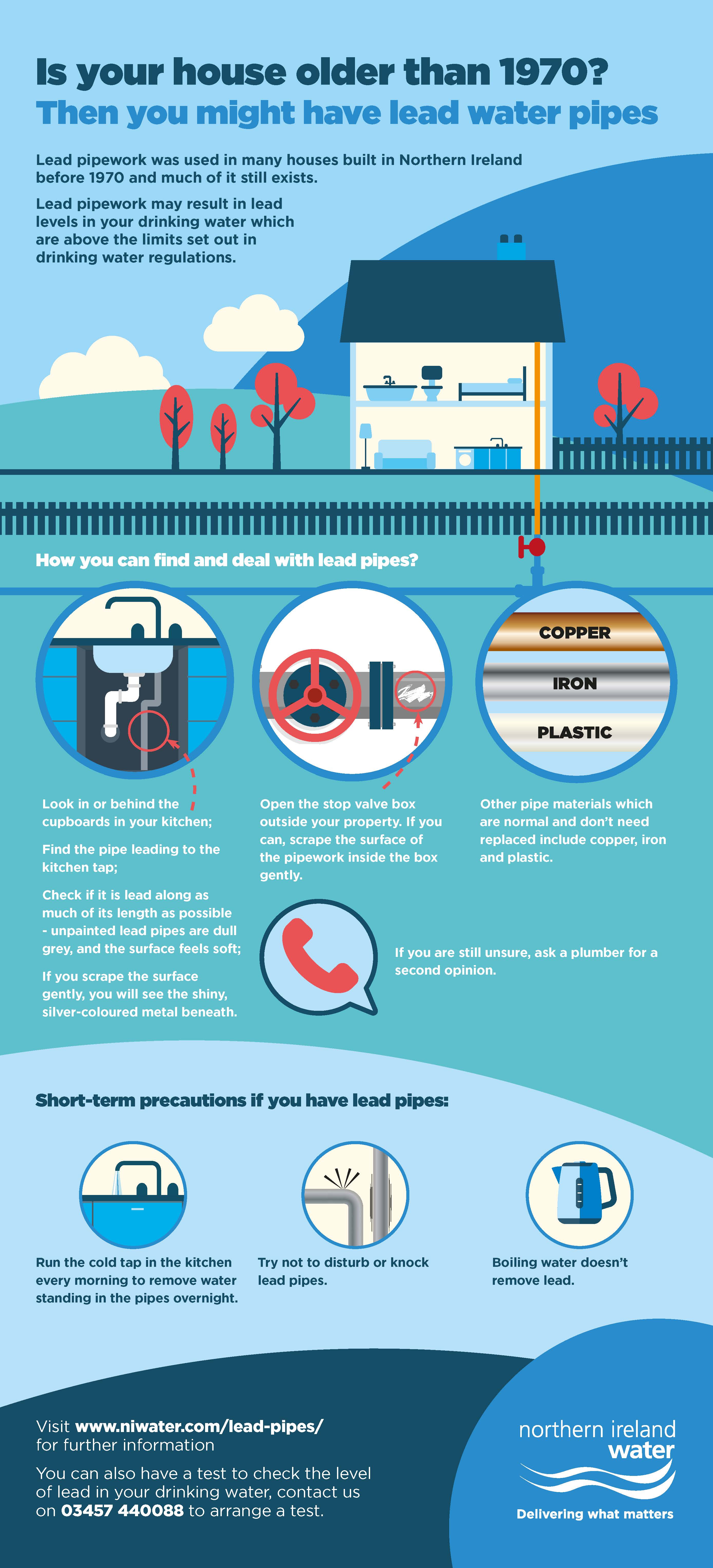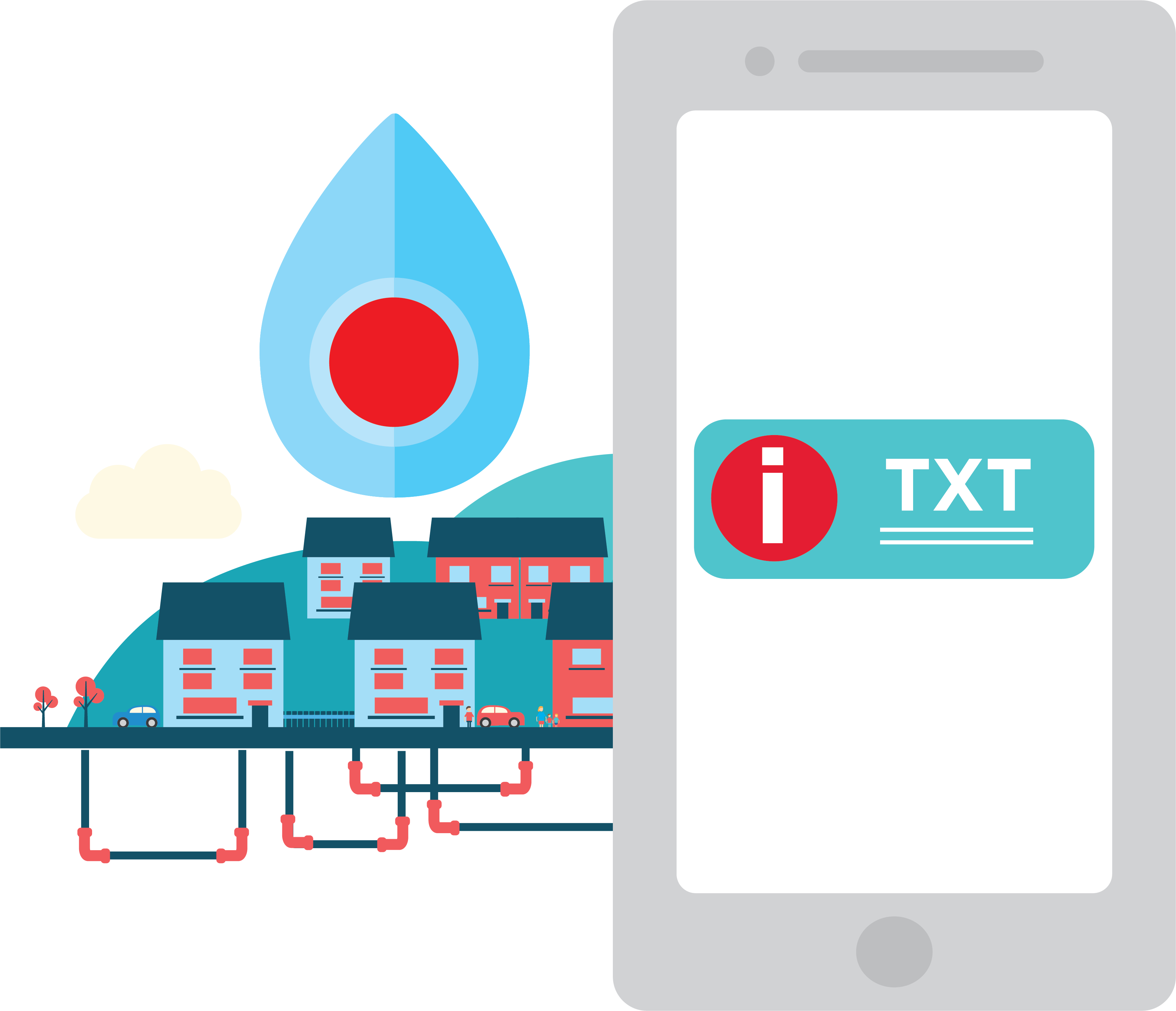NI Water is urging customers to check for lead pipework within their home if it was built before 1970. Lead pipework was used in many houses built in Northern Ireland with an estimated 100,000 properties where lead pipework still exists.
Having lead pipework is likely to result in lead levels in your drinking water, which are above the limits set out in drinking water regulations, and may be harmful to health. It is therefore important to check if you have any lead pipework in your property.
Head of Drinking Water Regulation, Dymphna Gallagher explains, “There is almost no lead in drinking water when it leaves our water treatment works or in our water mains. Any lead in drinking water usually comes from lead service pipes in the home.
“Lead pipe is predominantly present in older properties built before 1970. If your property is built prior to 1970 we recommend that you check for the presence of lead pipework and if it is present that you consider replacement of the lead pipework in your property.
“NI Water is dealing with this problem two ways, by chemical treatment, using Orthophosphoric acid, and the replacement of NI Water owned lead communication pipes. Orthophosphoric acid is added to the water supply at our water treatment works across Northern Ireland which helps to reduce the amount of lead which dissolves into the water from contact with lead pipework.
“NI Water also has a 25 year programme to identify and replace lead pipes within its infrastructure. As part of this programme, customers are informed when lead communication pipes (NI Water’s responsibility) have been replaced and are encouraged to replace their lead supply pipe (customer’s responsibility). If we are not currently working in your area and you decide to replace your lead supply pipe within your property, you can request us to replace our communication pipe, which we will do free of charge.”
Some simple checks include:
- Look in or behind the cupboards in your kitchen. You may also need to look in other places, such as the cupboard under the stairs. Find the pipe leading to the kitchen tap. Check if it is lead along as much of its length as possible. Unpainted lead pipes are dull grey, and the surface feels soft. If you scrape the surface gently with a kitchen knife, you will see the shiny, silver-coloured metal beneath;
- Open the flap of the stop valve outside your property. Examine the pipe leading from the stop valve to your property. If you can, scrape its surface gently;
- Some other pipe materials which you might come across which are normal and don’t need replaced include copper, iron and plastic;
- If you are still unsure, ask a plumber for a second opinion.
If you find lead pipes, you should have these replaced as soon as possible. Visit www.niwater.com/lead-pipes/ for further information and advice on how to do this.
Short-term precautions if you have lead pipes:
- Run the water: when you wake up in the morning, run the cold tap in the kitchen to flush out any water that has been standing in the pipes overnight. A sink full should do it. You can always use this water for your plants;
- Use the kitchen tap: only use water from the cold tap in the kitchen for drinks and food preparation;
- Bottled water: if you decide to give babies and infants bottled water, or use it for preparing infant formula, check the label to make sure it contains less than 200mg per litre of sodium (Na);
- Try not to disturb or knock lead pipes as this can increase the lead in your water;
- Be aware that boiling the water doesn’t remove lead content;
- If you have more than 40 metres (132 feet) of lead pipe, you will need to run more than a bowlful of water and give serious consideration to replacing these pipes;
- You can then use the water from the kitchen tap as usual.
If you are worried about lead in your drinking water, we can test a sample of your water. Contact us on 03457 440088 to arrange a test.

ENDS
Notes to editor:
NI water has achieved its PC15 regulatory commitment and proactively replaced 11,064 lead communication pipes on our network over this period.
At present Lead Pipe Replacement of NI Water owned pipes is being carried out in the following areas:
• North / South / West / East Belfast, Bangor, Lisburn and Glengormely

